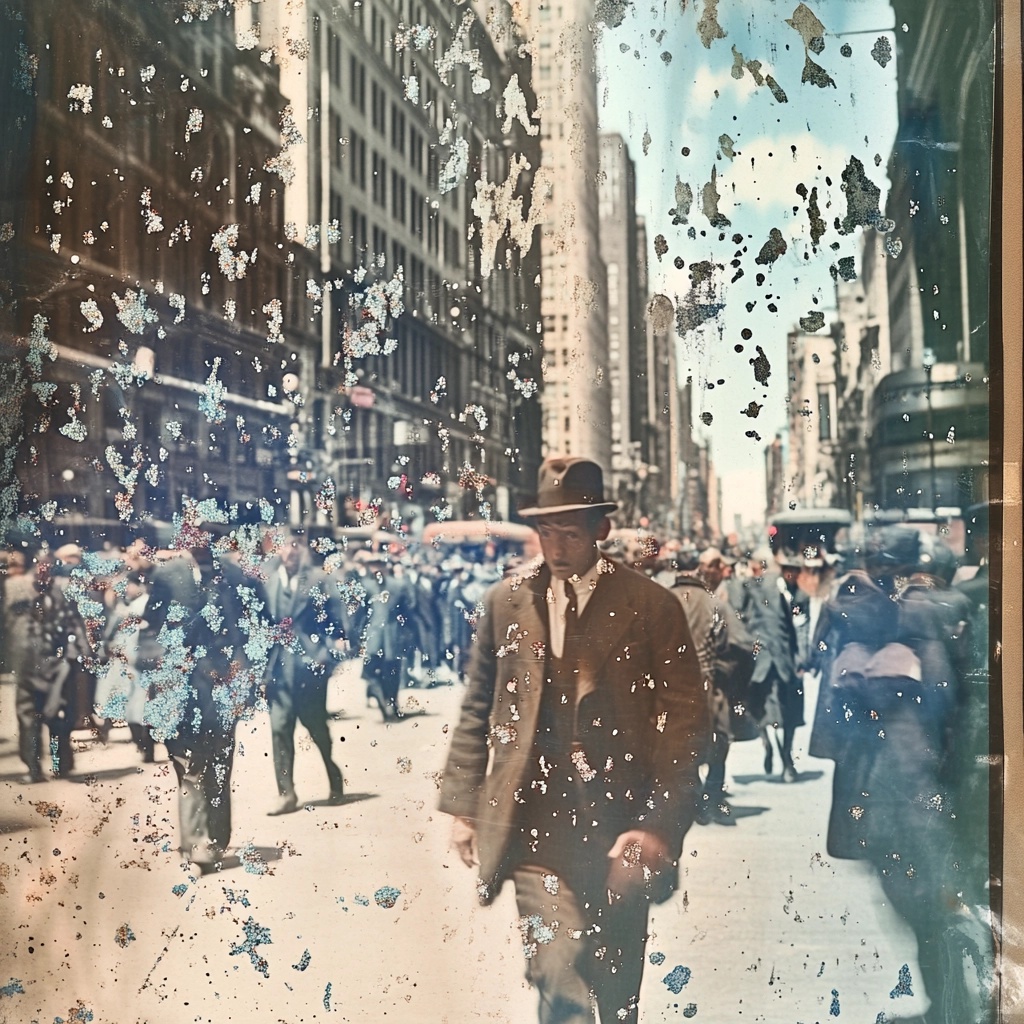BLACK NO MORE (1)
By:
May 26, 2025

George S. Schuyler’s Black No More: Being an Account of the Strange and Wonderful Workings of Science in the Land of the Free, A.D. 1933-1940 (1931) is a satire featuring the Invention of a transformative cosmetic treatment. HiLoBooks is pleased to serialize an excerpt for HILOBROW’s readers.
ALL INSTALLMENTS: 1 | 2 | 3 | 4 | 5.
Slowly, haltingly, Max Disher dragged his way down the hall to the elevator, supported on either side by an attendant. He felt terribly weak, emptied and nauseated; his skin twitched and was dry and feverish; his insides felt very hot and sore. As the trio walked slowly along the corridor, a blue-green light would ever and anon blaze through one of the doorways as a patient was taken in. There was a low hum and throb of machinery and an acrid odor filled the air. Uniformed nurses and attendants hurried back and forth at their tasks. Everything was quiet, swift, efficient, sinister.
He felt so thankful that he had survived the ordeal of that horrible machine so akin to the electric chair. A shudder passed over him at the memory of the hours he had passed in its grip, fed at intervals with revolting concoctions. But when they reached the elevator and he saw himself in the mirror, he was startled, overjoyed. White at last! Gone was the smooth brown complexion. Gone were the slightly full lips and Ethiopian nose. Gone was the nappy hair that he had straightened so meticulously ever since the kink-no-more lotions first wrenched Aframericans from the tyranny and torture of the comb. There would be no more expenditures for skin whiteners; no more discrimination; no more obstacles in his path. He was free! The world was his oyster and he had the open sesame of a pork-colored skin!
The reflection in the mirror gave him new life and strength. He now stood erect, without support and grinned at the two tall, black attendants. “Well, Boys,” he crowed, “I’m all set now. That machine of Doc’s worked like a charm. Soon’s I get a feed under my belt I’ll be okeh.”
Six hours later, bathed, fed, clean-shaven, spry, blonde and jubilant, he emerged from the out-patient ward and tripped gaily down the corridor to the main entrance. He was through with coons, he resolved, from now on. He glanced in a superior manner at the long line of black and brown folk on one side of the corridor, patiently awaiting treatment. He saw many persons whom he knew but none of them recognized him. It thrilled him to feel that he was now indistinguishable from nine-tenths of the people of the United States; one of the great majority. Ah, it was good not to be a Negro any longer!
As he sought to open the front door, the strong arm of a guard restrained him. “Wait a minute,” the man said, “and we’ll help you get through the mob.”
A moment or two later Max found himself the center of a flying wedge of five or six husky special policemen, cleaving through a milling crowd of colored folk. From the top step of the Sanitarium he had noticed the crowd spread over the sidewalk, into the street and around the corners. Fifty traffic policemen strained and sweated to keep prospective patients in line and out from under the wheels of taxicabs and trucks.
Finally he reached the curb, exhausted from the jostling and squeezing, only to be set upon by a mob of newspaper photographers and reporters. As the first person to take the treatment, he was naturally the center of attraction for about fifteen of these journalistic gnats. They asked a thousand questions seemingly all at once. What was his name? How did he feel? What was he going to do? Would he marry a white woman? Did he intend to continue living in Harlem?
Max would say nothing. In the first place, he thought to himself, if they’re so anxious to know all this stuff, they ought to be willing to pay for it. He needed money if he was going to be able to thoroughly enjoy being white; why not get some by selling his story? The reporters, male and female, begged him almost with tears in their eyes for a statement but he was adamant.
While they were wrangling, an empty taxicab drove up. Pushing the inquisitive reporters to one side, Max leaped into it and yelled “Central Park!” It was the only place he could think of at the moment. He wanted to have time to compose his mind, to plan the future in this great world of whiteness. As the cab lurched forward, he turned and was astonished to find another occupant, a pretty girl.
RADIUM AGE PROTO-SF: “Radium Age” is Josh Glenn’s name for the nascent sf genre’s c. 1900–1935 era, a period which saw the discovery of radioactivity, i.e., the revelation that matter itself is constantly in movement — a fitting metaphor for the first decades of the 20th century, during which old scientific, religious, political, and social certainties were shattered. More info here.
SERIALIZED BY HILOBOOKS: James Parker’s Cocky the Fox | Annalee Newitz’s “The Great Oxygen Race” | Matthew Battles’s “Imago” | & many more original and reissued novels and stories.
